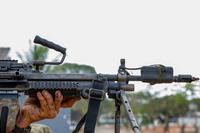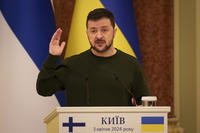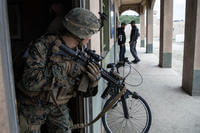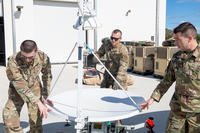America has done a lousy job of ensuring we have a crop of well trained and experienced strategists and must act to fix this. That's the conclusion of Barry Watts, one of the leading US experts on transformation and its discontents and a top analyst of weapons systems. Watts, who served under Rumsfeld as head of the crucial PA and E shop, was speaking at a seminar on the acquisition crisis facing the Air Force and mentioned the paucity of sound strategic decision making in recent years. I asked him to write something for us about the problem and how to fix it. Few failures are as fraught with consequences as poor strategic decision making. We may have the best weapons and and best trained troops, but if we use them badly the results are unlikely to transcend the abilities of the fine men and women who serve in the military. The last eight years should be ample proof of the poor quality of our national security strategists. Now is the time to act and reverse this. For those who don't recognize him the picture is of Clausewitz, whose writings (along with Sun Tzu) are still the touchstone for most strategists.
Watts' piece follows.
Finding Strategists
Do most U.S. political leaders have the cognitive skills and talents to craft and implement effective long-term strategies? Do most senior American military leaders — even those who have demonstrated tactical competence in combat — have those skills and talents? Historical evidence, as well as leading-edge research into human cognition, suggest that the answer to both questions is: no.
There is considerable evidence that strategic performance is an area in which U.S. political and military leaders have shown declining overall competence in recent decades. True, as the outcome of the Cold War and the turn-around in Iraq testify, American strategies have not been uniformly poor. Still, a case can be made that, on the whole, American strategic competence has been declining since the Vietnam War and continues to do so today. Given the recent financial crisis and economic down-turn, can the United States afford another decade of declining strategic competence? Or is it time to begin finding good strategists and put strategy in their hands?
Dwight Eisenhower noted in 1948 that although the “basic principles of strategy are so simple that a child may understand them,” determining “their proper application to a given situation requires the hardest kind of work.” John Collins added in 1973, based on faculty experience at the National War College, that while strategy is a game anyone can play, only the most gifted can play it well.
The most elemental fact behind these observations is that human cognition has two distinct modes: intuition and reasoning. The meticulous research of Daniel Kahneman and Amos Tversky indicates that intuitive responses in time-pressured situations based on pattern recognition are fast, parallel, automatic, effortless and associative, whereas reasoned responses based on logic and analysis are slow, serial, controlled, effortful and rule governed. Furthermore, building up a repertoire of successful patterns for dealing with “tactical” situations ranging from air-to-air combat to firefighters or nurses abruptly confronted with emergencies usually re quires lengthy training or experience. By contrast, the “Aha!” moments associated with genuine strategic insight usually happen in a flash of inspiration, even if that moment is often preceded by a preparatory period of wrestling unsuccessfully with a difficult problem.
If relatively few political and military leaders possess the cognitive skills demanded for competent strategic performance, can these skills be inculcated in most individuals through education, training, or other experience? In the case of intuitive responses in “do-or-die” situations, the Navy’s Topgun fighter weapons school, the Air Force’s Red Flag exercises, and rotations at the Army National Training Center, along with Gary Klein’s research into realistic training, all argue that we can provide most soldiers, sailors, airmen, and marines with the proficiency to make good tactical decisions. In the case of strategic competence, however, the work of Mark Jung-Beeman, John Kournios and others indicates that that subjects who were un-able to solve problems requiring the in-sight of sudden “Aha!” moments were unable to solve them at all. A military parallel to this experimental result can be seen in the fact that, prior to 2007, so few Army generals could see the line of solution in Iraq that General David Petraeus and a few others saw.
Given what has been learned in recent decades about how mammalian brains develop and operate, it appears that the cognitive skills to make insightful strategic choices are capabilities individuals either have by their early twenties or they do not. Here insightful strategic choices refer to devising courses of action likely to achieve one’s ultimate goals despite resource constraints, political considerations, bureaucratic resistance, the adversary’s opposing efforts, and the intractable un-certainties as to how a chosen strategy may ultimately work out. This conclusion is further supported by empirical observations of the specific portions of the cerebral cortex utilized during “Aha” moments.
Good strategists, then, are not only rare birds, but their distinguishing cognitive skills do not appear to be ones that can be inculcated in most individuals through education, training, or other experience. If so, then the best we can hope for in trying to find strategists is to look for those few individuals with the requisite cognitive skills. This is precisely what the British strive to do with their Higher Command and Staff Course (HCSC): use it as a filter to identify those senior officers who have the cognitive skills to make the transition from tactics to operational art and strategy.
Two unsettling observations follow. First, the U.S. military has no comparable mechanism to the British HCSC. Instead the U.S. military services cling to the view that strategic decision-making can be taught as a linear extension of tactical decision-making. Second, if the president has neither a talent for, nor an interest in, strategy, then national security strategy is likely to wander in the wilderness for the duration of that administration.
For more detail, read Watts's article, “US Combat Training, Operational Art, and Strategic Competence: Problems and Opportunities,” ; Watts and and CSBA's head Andrew F. Krepinevich will soon release a fuller treatment, “Regaining Strategic Competence.”







